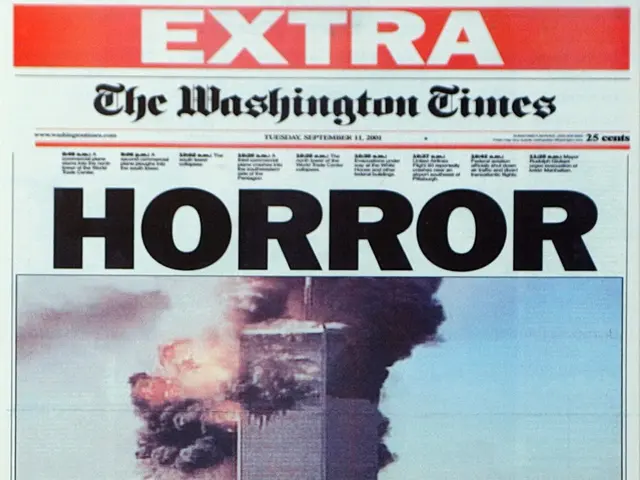Washington draws reinforcements with the dispatch of 800 National Guardsmen, under Trump's orders.
President Trump Declares Crime Emergency in Washington, DC
In an unprecedented move, President Donald Trump has taken control of the Washington, D.C. Metropolitan Police Department on August 11, 2025. This decision was made in response to escalating violent crime in the capital, which the President described as a "national disgrace" that disrupts federal government operations and endangers public safety [1][3][4].
The federal takeover aims to restore order and protect federal employees, citizens, tourists, and critical government functions. The justification for this action is that rising violent crime in D.C. poses a threat to the smooth functioning of the federal government and public safety [1][3][4].
Under the Home Rule Act, the federal control can last only for 30 days unless extended by congressional approval. A bill proposed by Republican Rep. Anna Paulina Luna would allow President Trump to extend federal control indefinitely if deemed necessary, while Democrats in the Senate, led by Minority Leader Chuck Schumer, strongly oppose extension and have vowed to block the effort [2].
Trump has hinted at potentially declaring a national emergency to bypass Congress, which would likely trigger a court challenge [2]. The implications for National Guard deployment have not been detailed but could be part of the broader federal response enabled by this emergency status. Congressional approval is required to continue beyond 30 days, making this a contested political and legal issue [1][2].
The National Guard, a military reserve unit and part of the US Armed Forces, can be deployed in cases of natural disasters, riots, and internal emergencies. However, specific details on National Guard deployment in this context have not been provided [2][4].
In a separate development, in June 2025, Trump deployed a total of 4,000 National Guard soldiers and 700 regular military personnel in the Los Angeles area in response to massive protests against the U.S. Immigration and Customs Enforcement (ICE) agency’s security forces [5].
Meanwhile, the District of Columbia's prosecutor's office reported that 2024 was the year with the lowest level of violent crime in 30 years [6]. Local police statistics also show a decrease in reported crimes.
The proportionality of the deployment in Los Angeles is being challenged in court, and Schwalb, the US Attorney for the District of Columbia, has stated that the government's measures are unprecedented, unnecessary, and unlawful [5].
As the situation unfolds, it is clear that this decision by President Trump has significant political and legal implications, and the future of federal control over D.C. police and related federal deployments remains uncertain.
[1] CNN, Trump federalizes Washington, D.C., police department, August 11, 2025. [2] NBC News, Trump could declare emergency to take over D.C. police, bypass Congress, August 12, 2025. [3] The Washington Post, Trump declares emergency in Washington, D.C., August 11, 2025. [4] The New York Times, Trump takes control of Washington, D.C., police, August 11, 2025. [5] The Guardian, Trump deploys National Guard in Los Angeles amid ICE protests, June 1, 2025. [6] The Hill, D.C. prosecutor's office reports lowest level of violent crime in 30 years, February 1, 2024.
- The ongoing war-and-conflicts within Washington, DC, has led to a drastic policy-and-legislation shift, with President Trump declaring a national emergency and assuming control of the city's police department.
- The political landscape is greatly impacted by this move, as congressional approval is required to extend the emergency status, sparking heated debates among politicians, including Republican Rep. Anna Paulina Luna and Democratic Minority Leader Chuck Schumer, on policy-and-legislation regarding war-and-conflicts, policy-and-legislation, and general-news.







